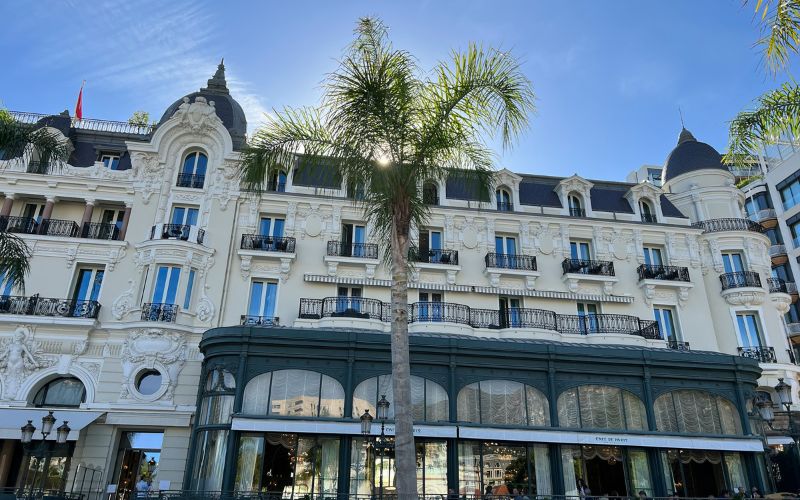A Design Lover’s Guide To Staying In Singapore
BY Sibashree Aug 27, 2025
In Singapore, design doesn’t hide in galleries. It’s in your path all day. You see it in a row of shophouses painted like a colour wheel, or in the quiet precision of a new building that still nods to its neighbours. Even your morning coffee might come in a café where the light, the tiles, and the chairs feel as considered as the beans. If you travel for good spaces, the city greets you at every corner. Also, choosing the best places to stay in Singapore is crucial for designers for the right dose of inspiration. In this Dream and Travel Guide, we will talk about these places to stay in Singapore and why they are so special. What Are The Places To Stay In Singapore For A Design Lover? Diverse cultural influences and the city’s commitment to design excellence have made Singapore a dream destination for design lovers. Singapore also hosts prominent events such as the Singapore Design Week. But where to stay in Singapore? Check out the following tips. 1. Sleeping Inside A Piece Of The City Follow the river along Robertson Quay and you’ll spot The Warehouse Hotel. The name is literal. It began life in 1895 as a warehouse when the Singapore River was the main artery for trade. Coffee, spices, and other cargo passed through here long before the glass towers rose. In the ’80s, the music got louder, and the building transformed into one of Singapore’s biggest nightclubs. The Lo & Behold Group took it on in 2017, working with what was already there. The timber trusses stay overhead, and the pitched roof still frames the lobby. Louvred windows filter in the tropical glare, while copper accents and bespoke furniture add warmth without covering the bones. There are just 37 rooms, so it feels calm. Inside, details matter. The linen is good to sleep in, and the lighting is soft but purposeful. Bang & Olufsen speakers are bath products that don’t try too hard. Step out, and the riverfront walkway leads you past bars and small galleries. Step back in, and the bar is waiting. The cocktails reflect the building’s trading history and wilder nights. 2. Neighbourhoods That Keep You Walking Kampong Glam instantly improves your mood. Narrow roads are dotted with murals. Patterned bolts are spilled onto the pavement by fabric retailers. The Sultan Mosque's gold dome shines above all. While the district's history is preserved, it coexists peacefully with modest design firms and modern cafés. Tiong Bahru reduces the tempo. It is an Art Deco neighbourhood. The low-rise buildings and curved balconies constructed in the 1930s mirror history. Here, you will pass bakeries with lines outside. The bookstores have a subtle yet irresistible coffee and paper scent, and galleries hidden in ground-floor apartments. With the serene ambience, you get to indulge in the subtleties. Do you crave both tradition and innovation? It happens to coexist on Chinatown's block. Temples and markets continue the traditional rhythms. But behind certain facades are galleries and minimalist tea houses experimenting with contemporary Chinese patterns. 3. Where The Ideas Live Start at the National Gallery Singapore to see the layout of the city's design concept. It is located in City Hall and the former Supreme Court, which are connected by a steel and glass atrium. The structure itself serves as a balance lesson. You go from 19th-century pieces to striking modern Southeast Asian art within. More petite galleries and museums narrow the focus. Ceramics are fresh from local kilns, hand-printed textiles, and furniture built with heritage skills, but for modern rooms. The line-up changes often enough that you can visit twice a year and have two completely different experiences. Independent spaces are the wild cards. One weekend, it’s street photography; the next, it's abstract sculpture or experimental craft. These places make the city’s design scene feel alive. 4. Meeting The People Who Make It Happen Weekend markets are the easiest way to meet makers. These creative geniuses are the potters, jewellers, and textile artists. Their stalls are set up and stand ready to talk. You pick up a cup, and the potter tells you about the clay. You try on a necklace and hear where the stone was found. These exchanges turn an object into a story. Workshops take you one step further. You might paint batik in a studio where the air smells faintly of wax, or shape a lump of clay into a bowl under the eye of someone who’s done it a thousand times. You leave with something you made and a memory that sticks. 5. Eating And Drinking In Style Singapore's cafés are known not only for their kopi but also for their kopi. They're famed on how to set a scene. Do you love Terrazzo counters? Are you fascinated with cane chairs and patterned tiles? It's all here and more. You'd love to linger in these spaces even after emptying the cup. Rooftop bars add to the skyline, but also think about the atmosphere. Lighting shifts as the evening goes on, music feels tuned to the room, and some bring in art or live performances. They’re places to stay a while, not just stop in. 6. Timing Your Visit The design hums peacefully in the background all year long. Yet certain weeks increase the volume. Such is the Singapore Design Week. It is the headline event. With talks, tours, and installations, you will see incredible colour and artistry spilling into galleries, studios, and public spaces. In between, smaller fairs and pop-ups keep things interesting. See The Little Red Dot's surprising art, especially when you plan your trip right. 7. Walk, Don’t Rush The real surprises show up when you’re on foot. A doorway framed in patterned tiles. A mural glimpsed down an alley. An old shop sign is still hanging above a modern boutique. Maps are fine. But leave room for detours, and you might thank yourself later. Enjoy The Perfect Fusion Of Heritage And Modern-World Charm At The Best Places To Stay In Singapore In Singapore, heritage and modern life aren’t kept apart. They meet harmoniously in the same streets. Oftentimes, in the same buildings. Staying in a hotel with a warehouse theme drops you right in the middle. You wake under beams over a century old. You get to spend the day in districts where history meets fresh ideas. Plus, even return to a bar that pours a little of both into your glass. For a traveller drawn to design, that’s reason enough to come. And to come back.













